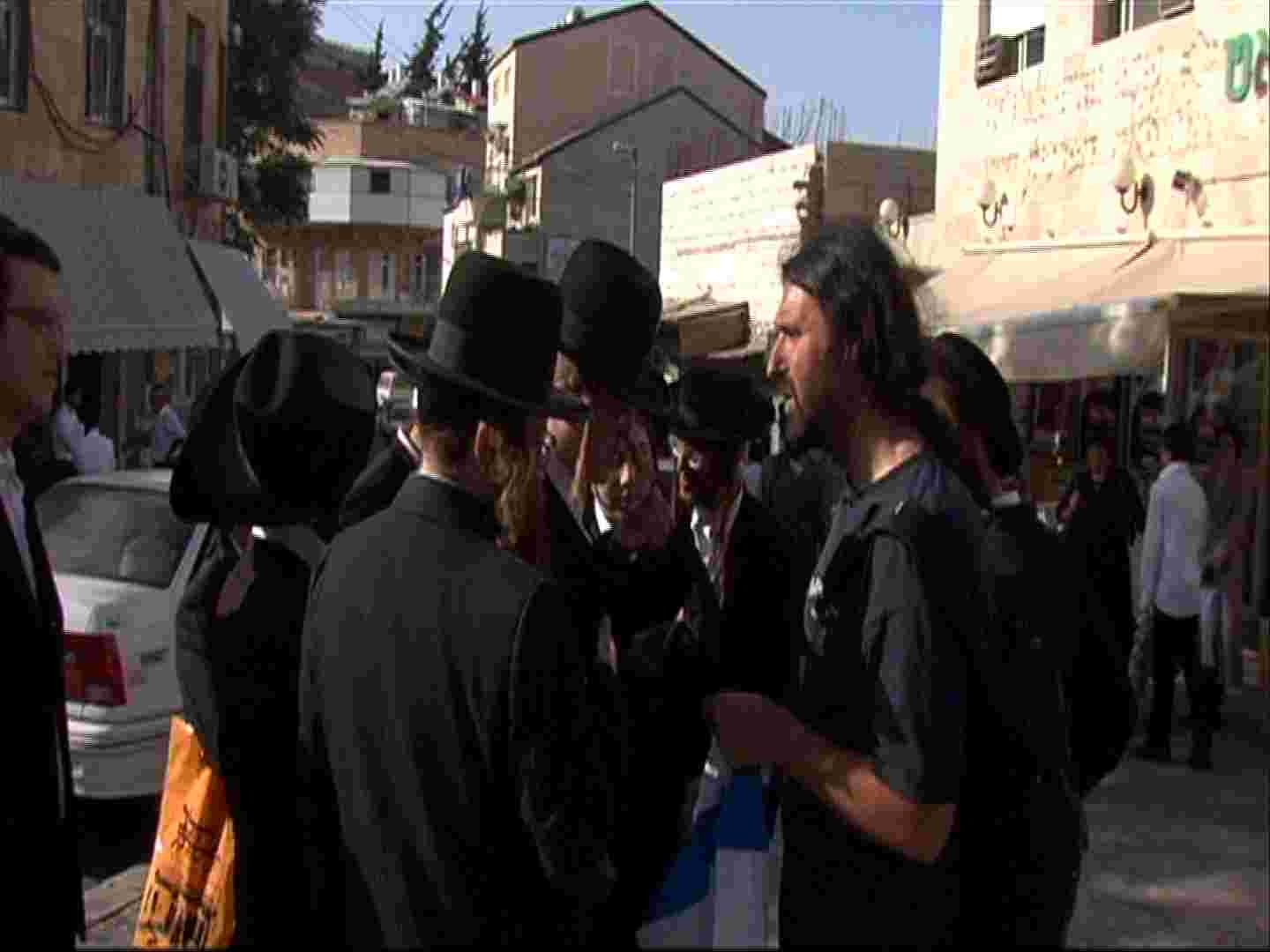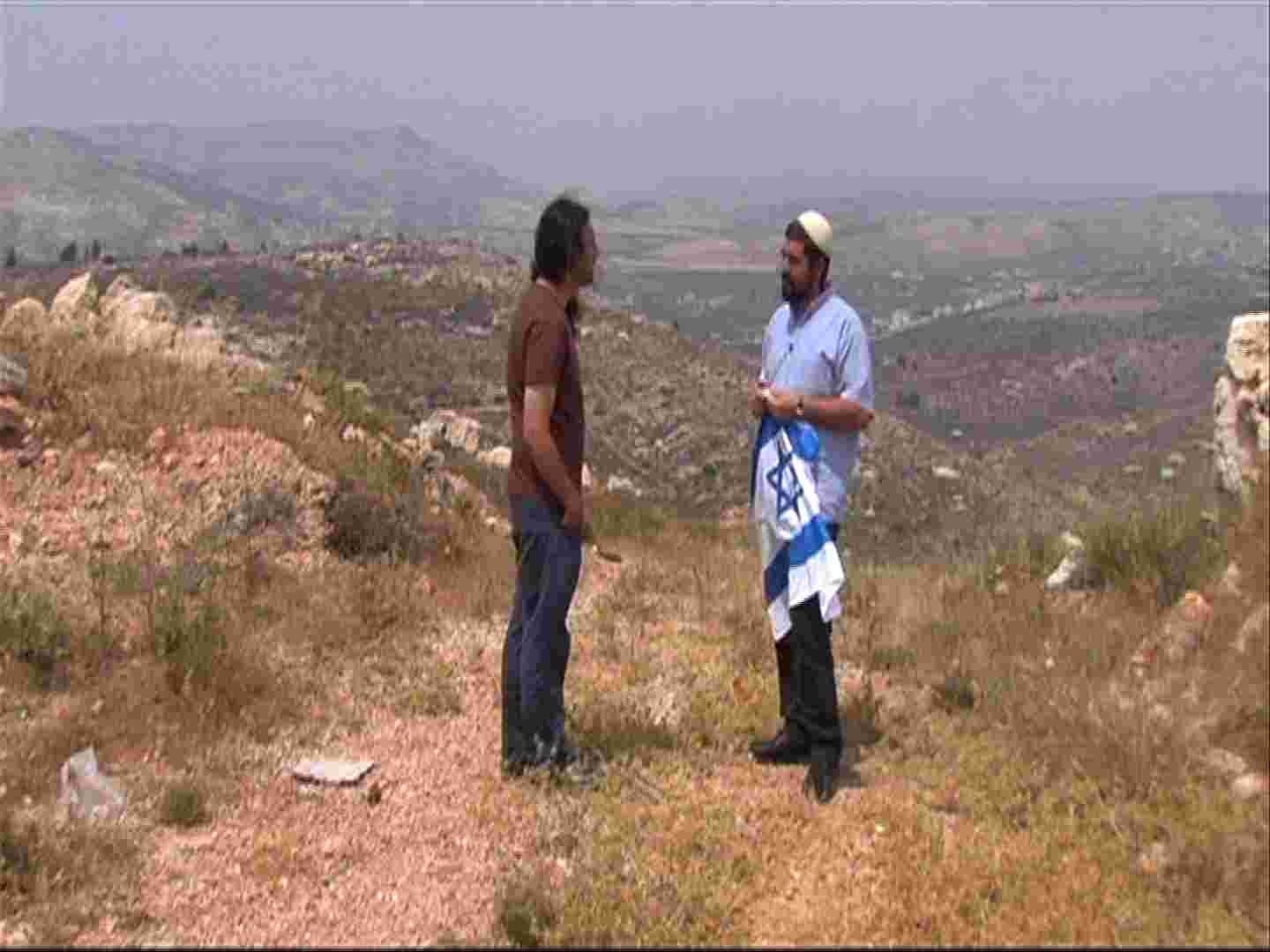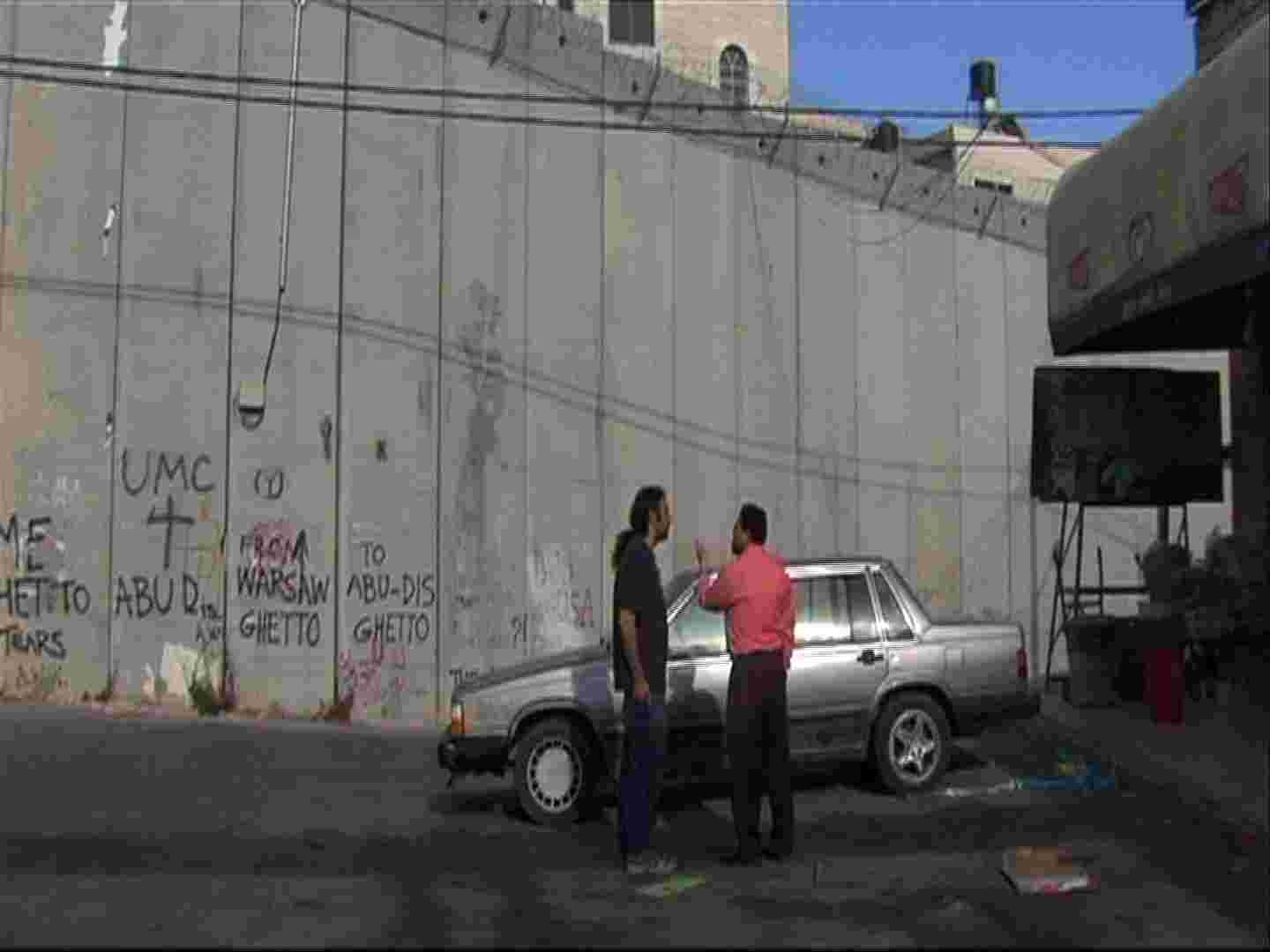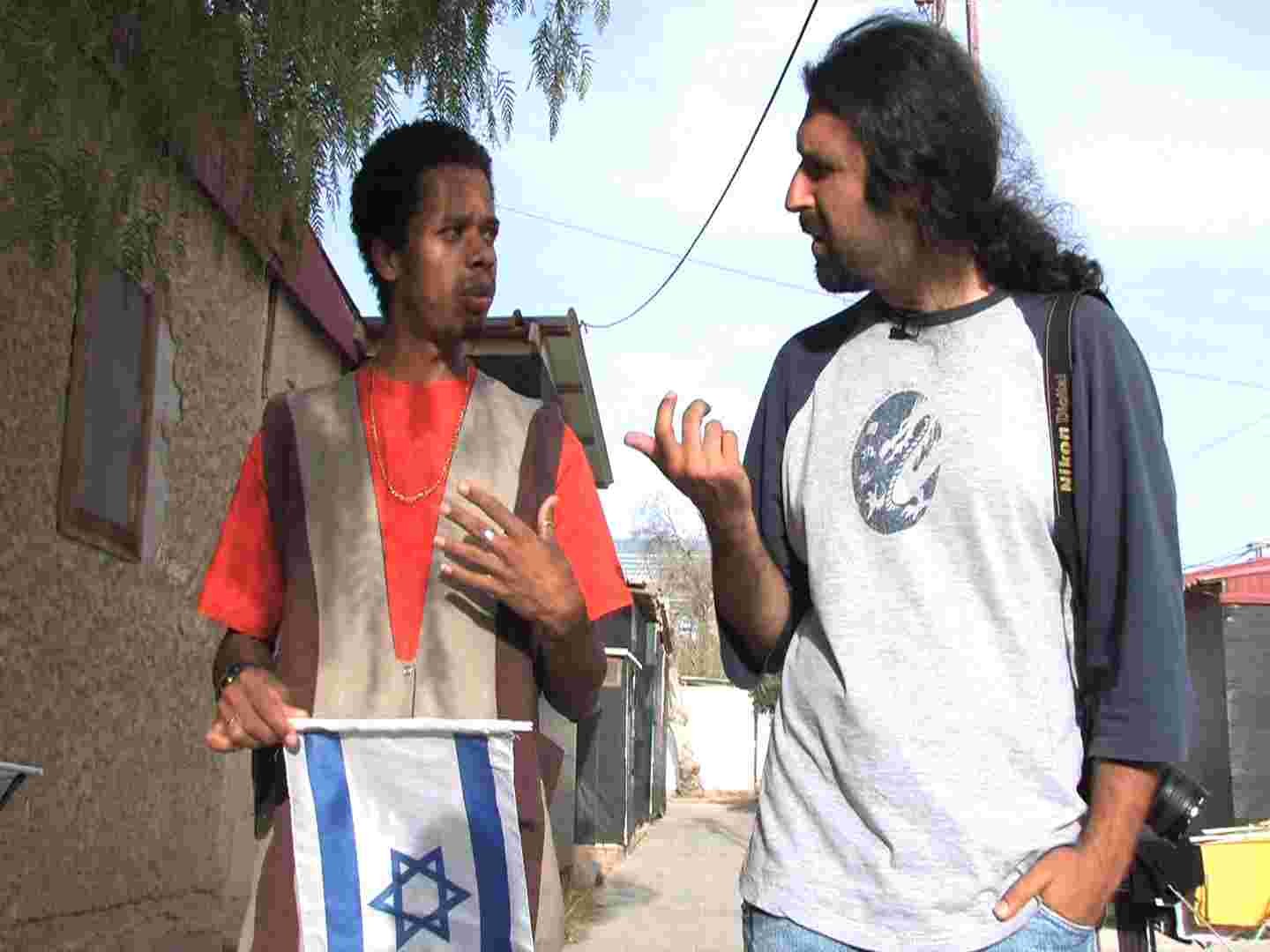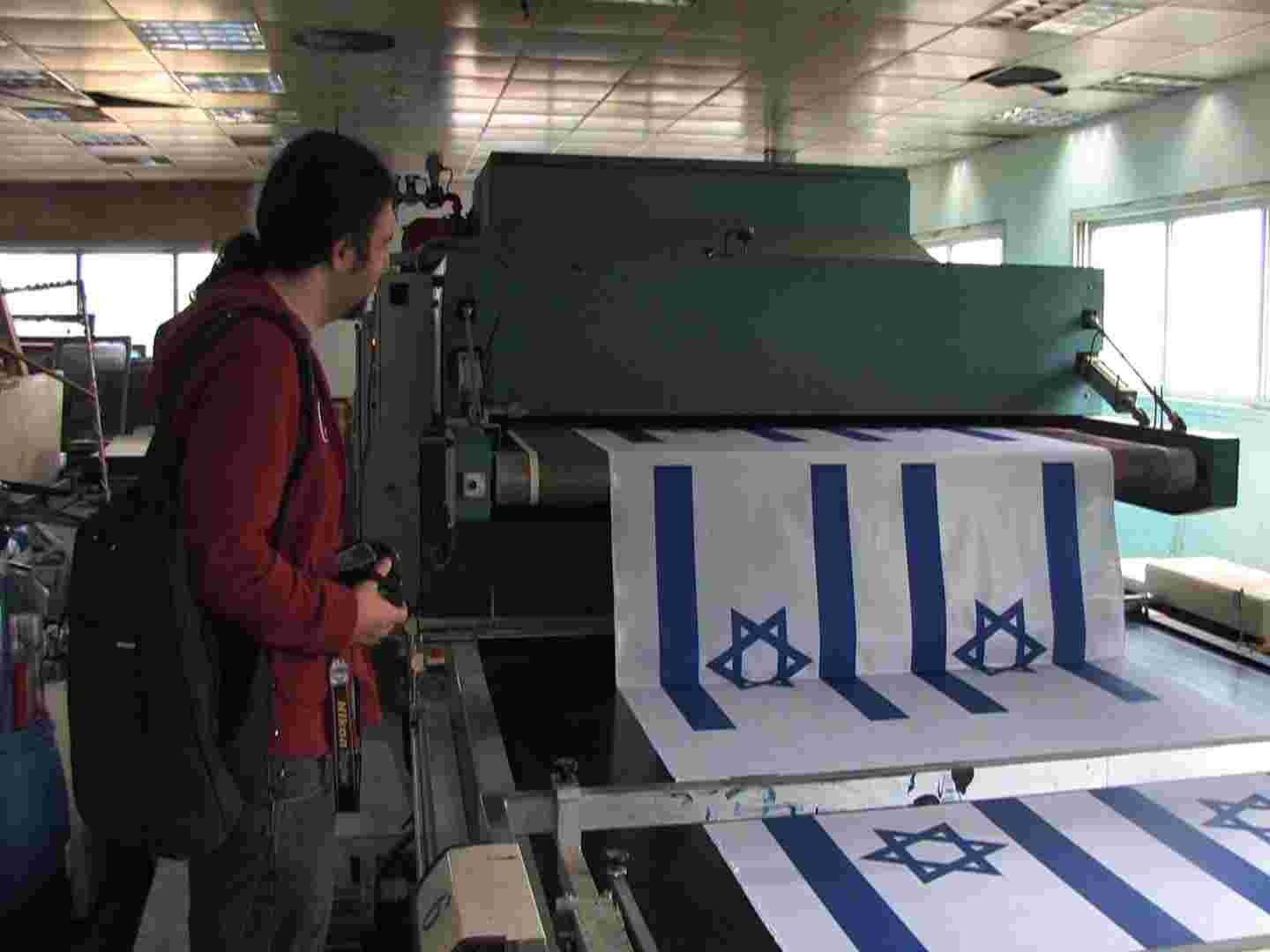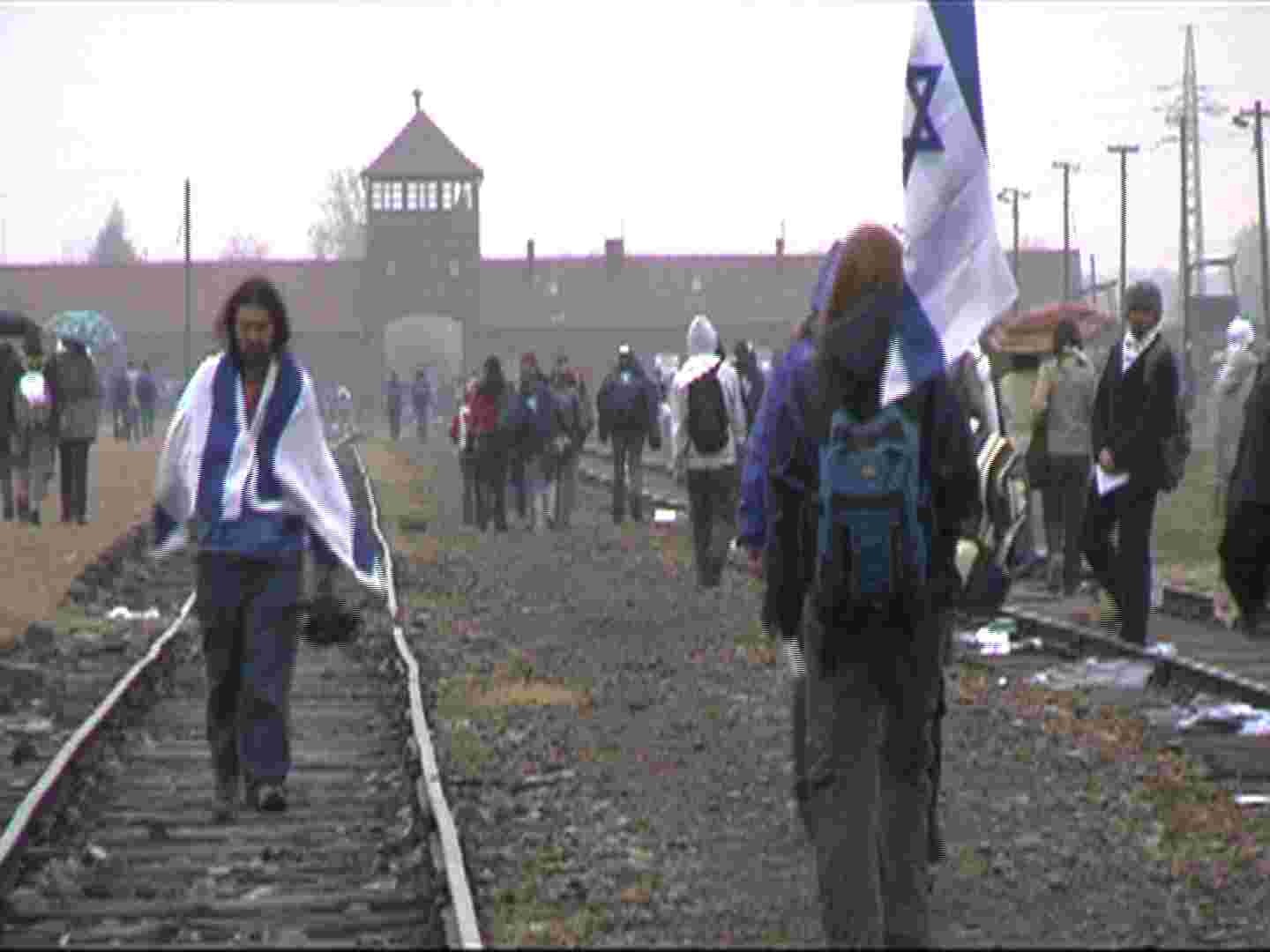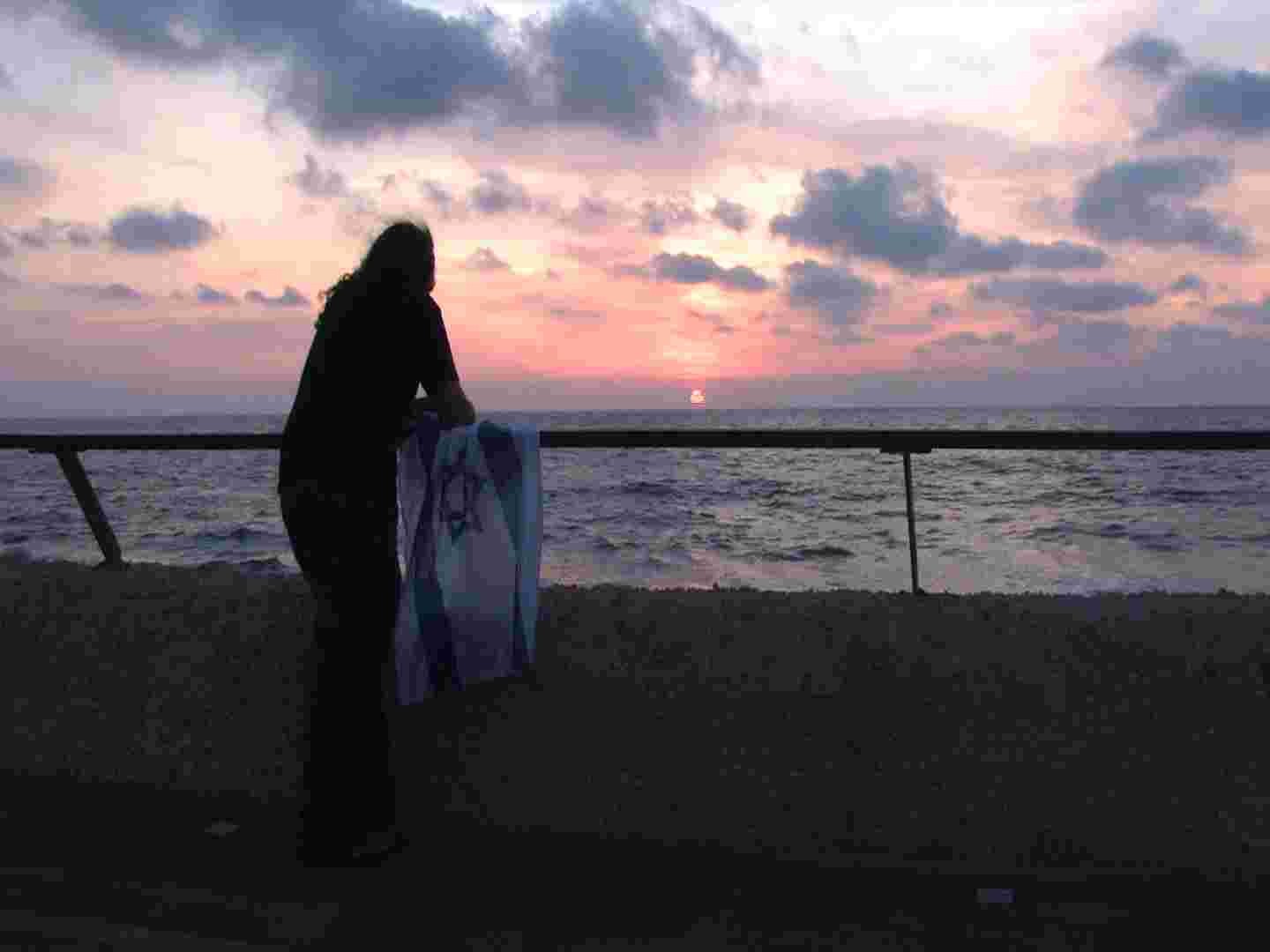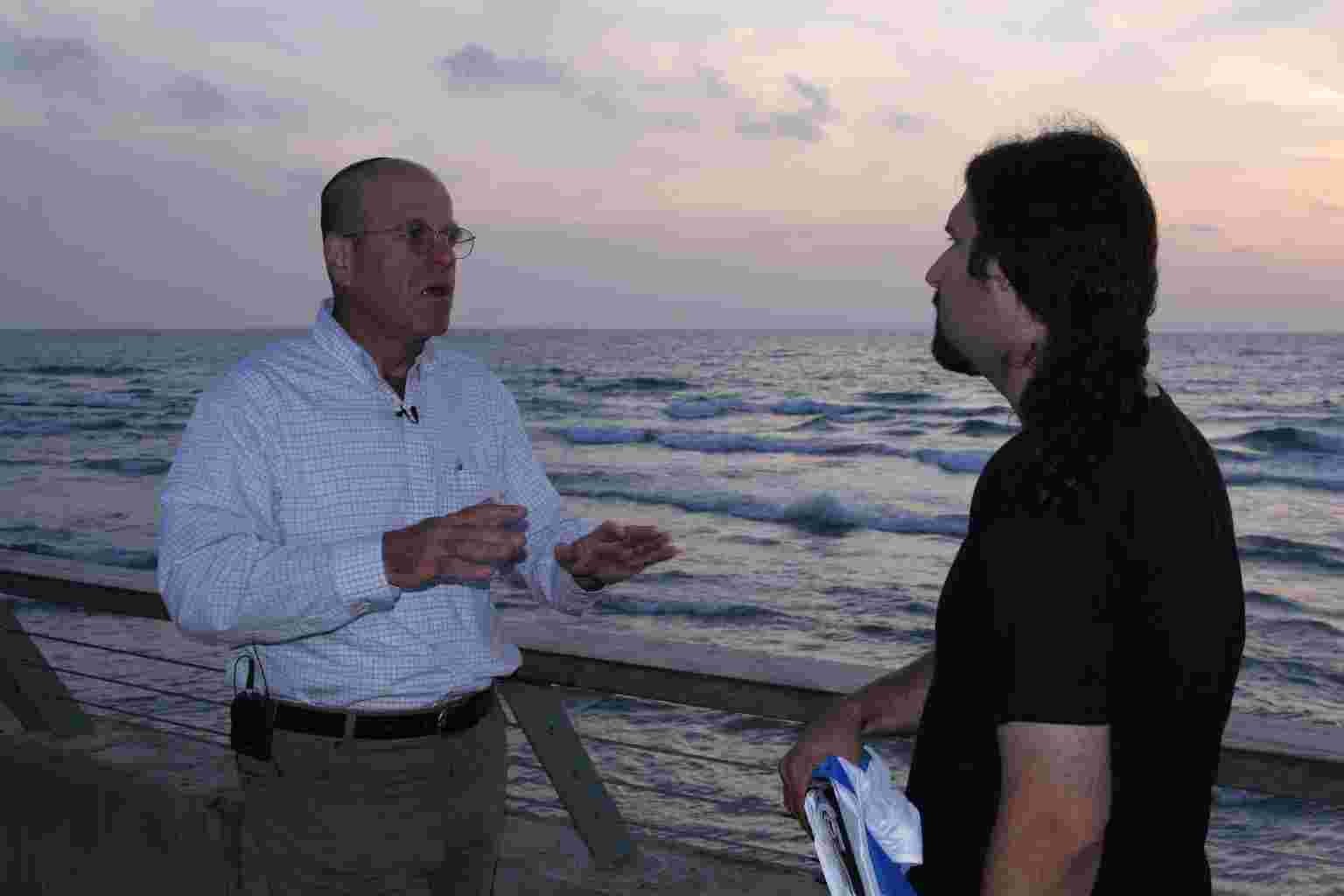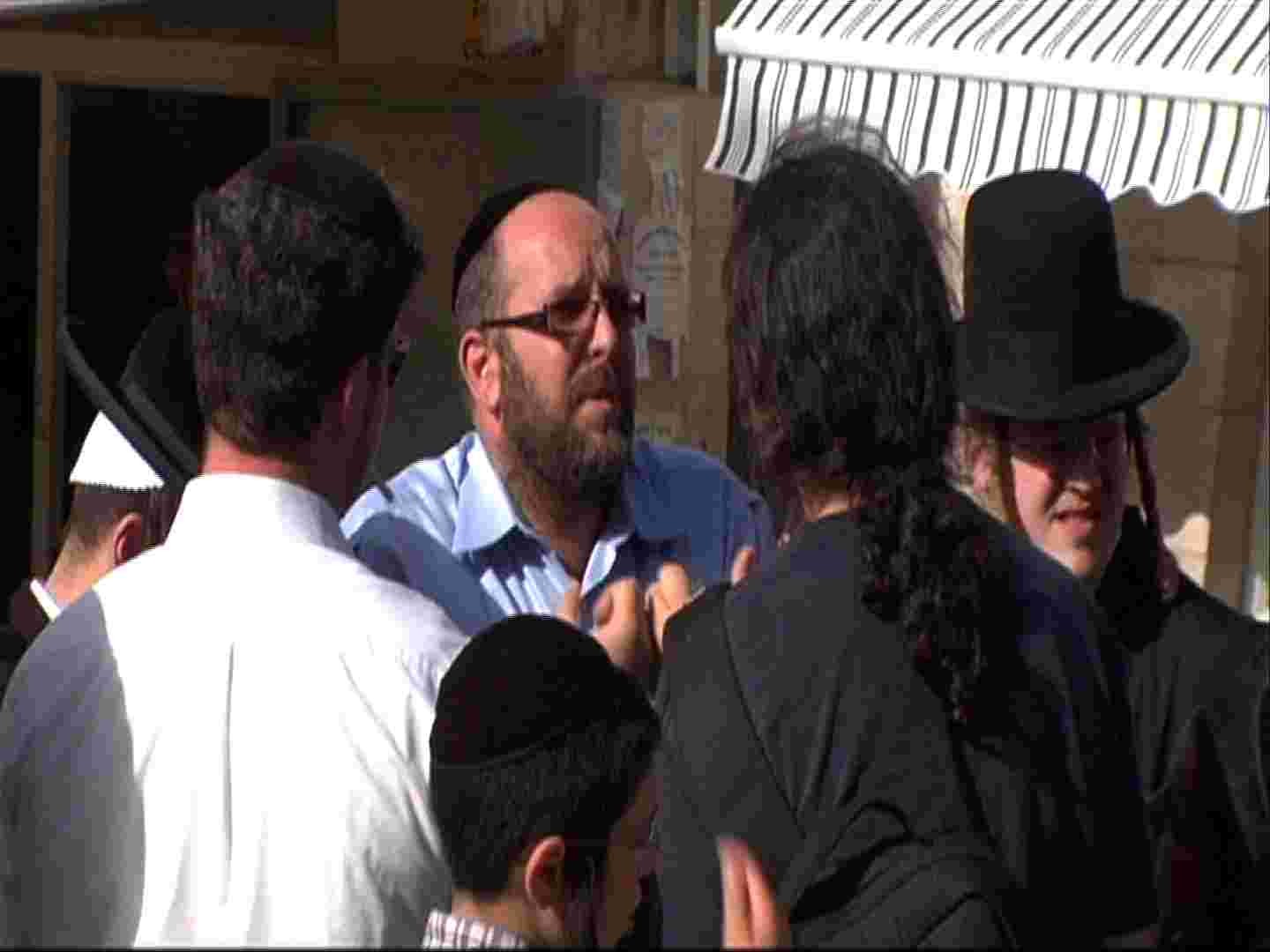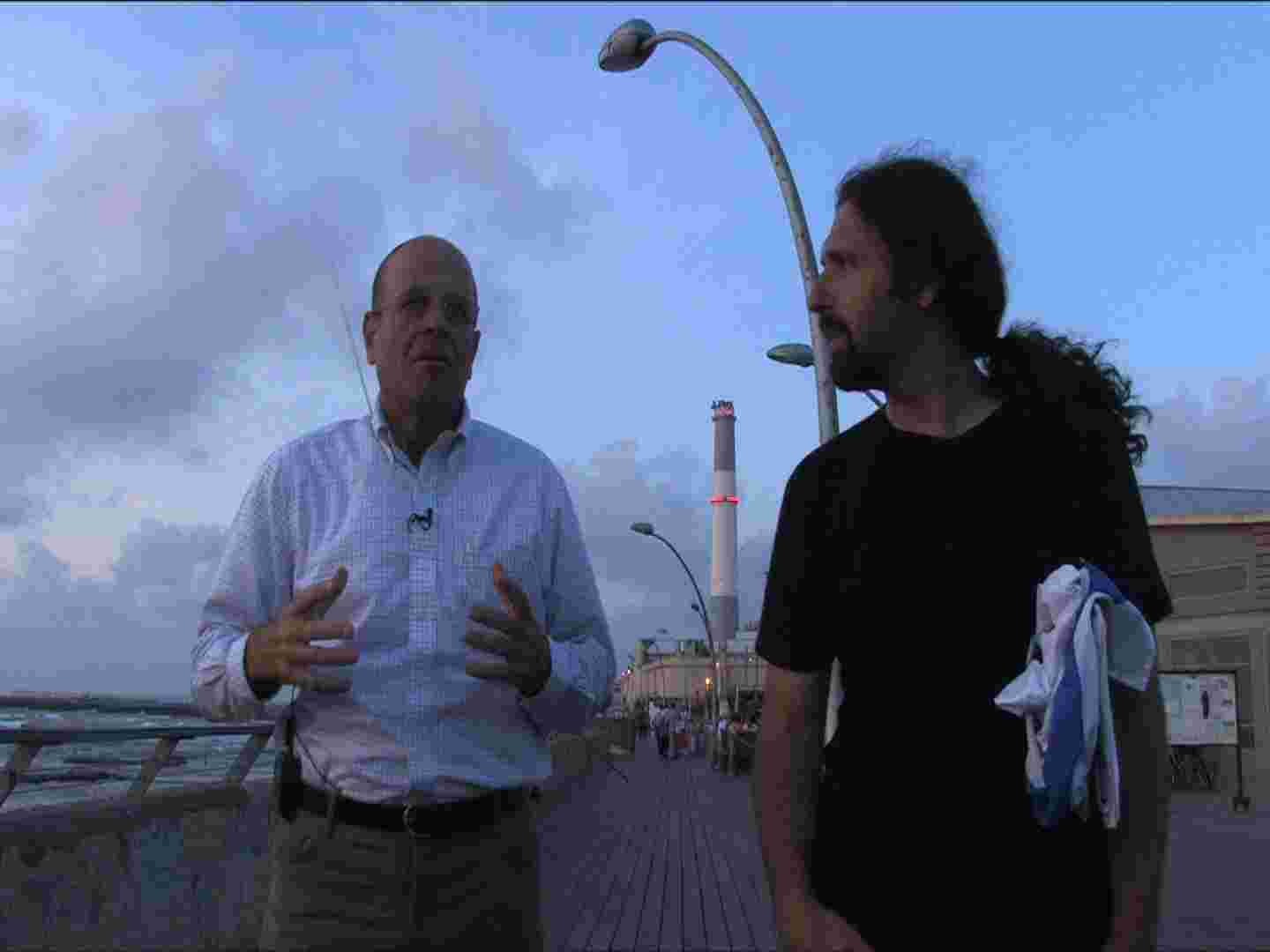On the Eve of Israel's 60th birthday, Canadian- Israeli filmmaker Igal Hecht travels from one end of Israel to the other for six months, asking Israelis one simple question: "What does the Israeli flag mean to you?". This heartfelt, comedic documentary explores the crisis of identity that many in Israel now face and offers an insight into what the future holds for the nation.
Synopsis
On the Eve of Israel's 60th birthday, Canadian- Israeli filmmaker Igal Hecht travels from one end of Israel to the other for six months, asking Israelis one simple question: "What does the Israeli flag mean to you?". This heartfelt, comedic documentary explores the crisis of identity that many in Israel now face and offers an insight into what the future holds for the nation.
Festivals
- Montreal Sefarad Film Festival, Canada, 2012
- Detroit Jewish Film Festival, USA, 2010
- Buffalo Jewish Film Festival, USA, 2010
- Jewish Eye Film Festival, Ashkelon, Israel, 2009
Press & Links:
Zionist filmmaker Igal Hecht will screen his new production, "My Flag" at the Jewish Eye Film Festival this Thursday in Ashkelon. Hecht, who left his native Ashkelon to live in Toronto, Canada, has recently produced a number of films criticizing the 2005 Disengagement from Gaza. for the entire review on IsraelINN.com, check: http://www.israelnationalnews.com/News/Flash.aspx/172889#
'It was a beautiful day in Birkenau'
By DAVID BRINN
'My parents made the mistake for my bar mitzva present of getting me a video camera," laughed documentary filmmaker Igal Hecht. "They thought it would make me happy and that I would go on to become a lawyer or doctor, but I ended up defying the Jewish stereotype."
The Israeli-born Hecht is a graduate of the School of Communication Arts of Toronto's Seneca College where he has also been teaching for the past seven years. But his main reason for getting up in the morning is to work on his documentaries - almost 40 since he founded his company Chutzpa Productions in 1999.
In the last few years, the focus of Hecht's films has almost exclusively been on Israel, which he calls an obsession borne of necessity.
"I was born in Israel but left as a teen in 1988 when my family made yerida. Even though I've been in Toronto ever since, I've been in Israel regularly; in recent years every two or three months," he told The Jerusalem Post from his home in Toronto last week, as he prepared to fly here for the Israeli premiere of his latest film My Flag on Thursday night at the Sixth Jewish Eye Film Festival in Ashkelon.
"I've made about 15 documentaries about Israel. It's a slight obsession to some degree. There's somewhat of a guilt trip feeling, but ultimately, it helps me keep connected to Israel and the daily happenings there. It's hypocritical, I'm fully aware of that, being in Toronto and focusing on Israel."
Hecht has had his eyes on Israel ever since leaving for Toronto as a nine-year-old. And it turns out his solace came in the form of a documentary on the country that sparked his interest in the art form.
The first documentary that affected me was made by Simcha Javocobici, a Canadian filmmaker living in Israel who later made the film The Lost Tomb of Jesus. He released a film in 1988 that I saw called Deadly Currents about the first intifada," said Hecht.
"I remember seeing it soon after we had moved to Canada and I was homesick. We didn't have satellite or Internet, just the burekas films from the 1960s to remind us of Israel. And watching the documentary, I felt such a connection. All of a sudden, it really captured my attention."
After attending Seneca and immersing himself in film, Hecht began making his own documentaries in the late 1990s, the first called Parted, a look at two Canadian brothers, one who stayed in Toronto and one who went to Israel. Another film that received attention was The Yid, about the relationship between Israelis in Toronto and Canadian Jews. But it wasn't until 2004, and his film Kassam, about Sderot, that Hecht made the leap from looking at Israel from the outside to diving headfirst into the storm.
"From then on, I started focusing on disengagement and its aftermath," said Hecht. "Almost all of my films are political in one way or another. The first one that wasn't was in 2007 when I made a documentary on Israeli nightlife."
WHILE CALLING himself a staunch Zionist, Hecht feels that there's no contradiction in exposing blemishes in Israel's landscape, which results in films like My Flag. Hecht and his Israel-based partner Lior Cohen spent months on the eve of Israel's 60th birthday traversing the country and asking everyone they encountered one question - what does the Israeli flag mean to you?
Humorous, biting, and reflective, the answers mirror the fractures of Israeli society and the attempt on the part of Israelis to understand the nature of their country amid their first identity crisis.
"The first time the idea of doing this film entered my mind was when I was on the March of the Living in 2006," said Hecht. "It was a beautiful day in Birkenau, and a group of Israeli students wanted to sit on the grass but didn't have anything to spread underneath them, so they used the Israeli flag. I remember thinking, 'you shouldn't be sitting on the flag.'
"About a year later I was relating the story to a colleague and he said it would make a great topic for a movie. I had no idea how to make such a film; how do you make a film about a flag? I called Lior and he encouraged me."
Placing himself in one his movies for the first time, Hecht shoots the film like a personal odyssey, hoping to find answers to his question that will enable him to continue believing in the flag and what it has stood for.
"The only way to make a film with no budget in the time that we had was to put myself in it. But it works - because it's more a personal story and narrative. The film is called 'My' Flag. And I live under the banner of the flag, even if it's hypocritical to say that since I'm living in Toronto," he said.
During the making of the film Hecht traveled to Sderot, where a man whose wife was seriously injured in a Kassam attack angrily says, "This flag is nothing to me - if you weren't here, I would burn it like the Arabs do."
In Mea She'arim, he walked around with a flag wrapped around him, like a more thoughtful Bruno, evoking residents to respond, "It's a rag, I wouldn't even wash the floors with it."
"We don't need a flag, we have Hashem," another says.
But for every negative connotation, there's patriotic responses, from singer Saraleh Sharon who says, "The flag of Israel is our home." Or from a Druze Israeli in the North who says, "I am proud to be a son of this nation."
For Hecht, the whole process was eye-opening.
"I learned that the flag is not such a uniting symbol. A lot of people had a lot of different answers about what the flag meant to them. Some people had artistic answers about the colors and design of the flag, and some had very political answers, like the man in Sderot," he said.
"I learned that there's frustration in Israel. I end the film with a speech Ezer Weizman gave in 1996 in Germany. He talked about the country standing at a crossroads and unsure of where it was going. Unfortunately, that's the thesis of the film ultimately. There's a lot of uncertainty and lack of vision for many Israelis. That can be still translated into love and appreciation of the flag, but it also provokes hesitancy and grasping at trying to understand what's going on in the country. Is it Zionism, or post-Zionism? What is the new Israel?"
http://www.jpost.com/servlet/Satellite?cid=1255694840574& pagename=JPost%2FJPArticle% 2FShowFull The blue and white of the Israeli flag has never been more closely analyzed and inspected than in the documentary film My Flag by Toronto filmmaker Igal Hecht
"Hecht, an Ashkelon native now living in Toronto, approached dozens of Israelis for the film, asking them what the flag meant to them. "My Flad"...depicts a society-wide identity crisis."
For the entire review, check: http://www.haaretz.com/hasen/spages/1121572.html
Raphael Ahren, Haaretz.com, October 15, 2009
My Flag is possibly the filmmaker’s most personal film yet. It is about his own journey of discovery and he appears everywhere in the film, walking the length of Israel wrapped in the blue and white flag, confronting and, at times, provoking people for their opinion.
For the complete review please follow the link:http://www.cjnews.com/
index.php?option=com_content& task=view&id=15714&Itemid=86 JOSEPH SERGE, Arts Editor the Canadian Jewish News
What’s the Symbolism of the Israeli Flag?
“I set out to make this film deciding to put myself in the movie,” he says. “The flag has so much meaning to me, I thought I’d engage people and ask them this question and see where it takes them. Nobody has gone out and asked this one simple question, what does this flag mean to you?. There were a lot of interesting answers.” What he found is that it divides the citizens of its country rather than unifying them
For the complete review please follow the link: http://www.canadasisrael.ca/
2008/11/what’s-the-symbolism- of-the-israeli-flag/ Lauren Kramer, Canada's Israel, November, 2008
Festivals
- Montreal Sefarad Film Festival, Canada, 2012
- Detroit Jewish Film Festival, USA, 2010
- Buffalo Jewish Film Festival, USA, 2010
- Jewish Eye Film Festival, Ashkelon, Israel, 2009
- Cape Winelands Film Festival, South Africa, March 2009
- Toronto Jewish Film Festival, USA, April 2009;
Educational
- University of Texas at Austin
- Baltimore Center for Jewish Education
- American Jewish University
- Duke University
- University of Denver
- Resource Center for Jewish Education
- Ohio State University
- UCLA
- Taglit Birth Right, LA
- Harvard University
- Library of Congress
- University of Pennsylvania
